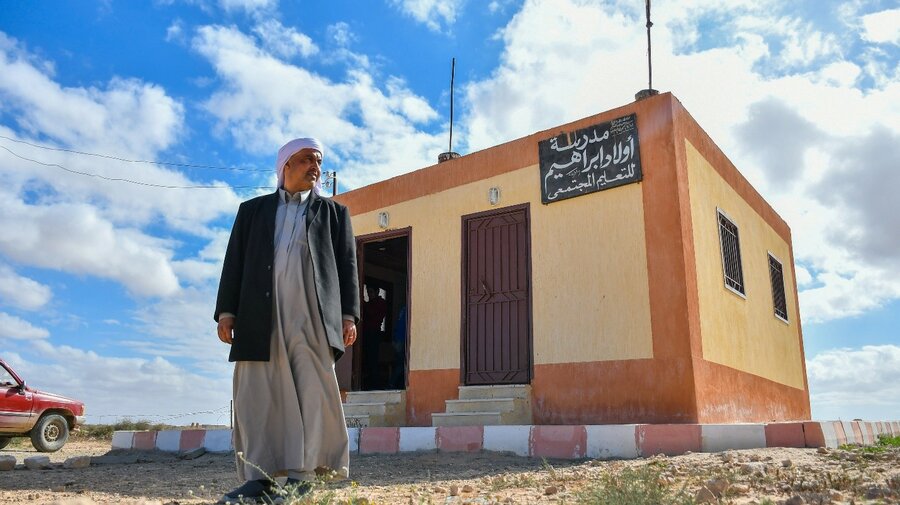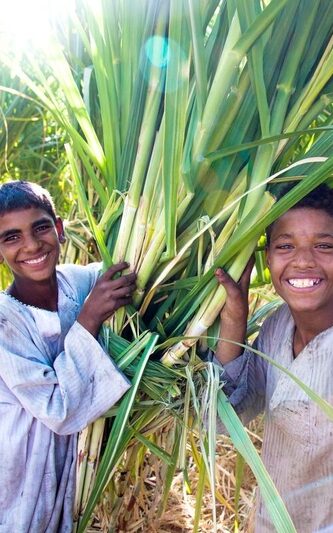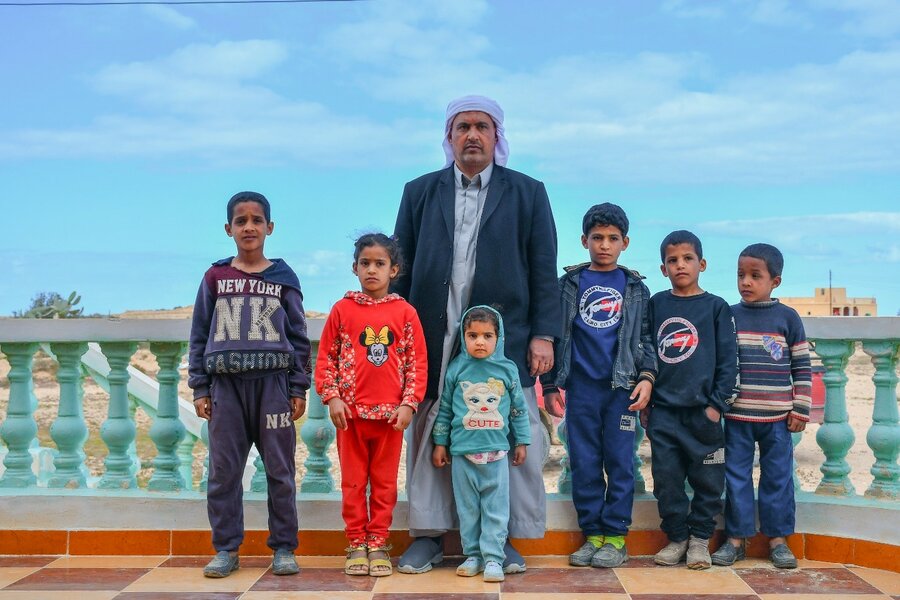
EGYPT:
Influential But Hungry
In the midst of positive economic growth, this regional powerhouse is facing a set of long-standing development challenges: poverty, food insecurity, malnutrition, spatial and social disparity, and gender-based inequality – with climate shocks on top of it all.
population of Egypt
live beneath the income poverty line
of people were unemployed in 2021

REACHING THE VULNERABLE
With a growing population of more than 100 million, Egypt is the most populous country in North Africa and the Arab world, and an influential geopolitical actor in the region.
In line with Egypt’s Sustainability Development Strategy: Vision 2030, the country has transformed the design, delivery and scope of its national social protection programs and the National School Feeding Program to better support vulnerable groups.
While maintaining positive economic growth, Egypt faces a set of long-standing development challenges, including poverty, food insecurity, malnutrition, spatial and social disparity, and gender-based inequality, as well as climate shocks.
According to the 2022 Global Hunger Index, Egypt sustains a moderate level of hunger, ranking 57 out of 121 countries. Food affordability, quality and safety remain challenges as Egypt continues to rely on global markets for more than half of its staples. Malnutrition is another public health concern, with a 13 percent stunting rate, and 4 percent of children under 5 years of age being underweight.
WFP’s Work in EGYPT
Our programs complement government efforts to help the most vulnerable Egyptians by securing basic food and nutritional needs; building resilience for improved livelihood, employability and recovery from economic shocks; and strengthening national institutional capacities to support at-risk populations.

In line with the national school feeding program, WFP provides nutritious, daily in-school snacks (fortified date bars) to community school children in Egypt’s poorest regions. To further incentivize retention in schools and combat child labour and early marriage, WFP provides cash assistance for food to families of community schoolchildren. Together with partner Ministries, we also support digital education, through the use of digital tools and teacher training, and economic inclusion of youth and women through entrepreneurial training, skills development, and micro loans.


In coordination with other humanitarian organizations, WFP provides assistance to vulnerable refugees to help meet their basic food needs. This is done through cash assistance for food, nutrition support for pregnant and nursing women, and livelihood training to improve employment opportunities.


Under the ”First 1,000 Days” nutrition program, WFP and the Ministry of Social Solidarity provide cash top-ups to pregnant and nursing women, under the national social protection program “Takaful and Karama” (Solidarity and Dignity), to help secure good nutrition. WFP also provides technical support to national nutrition activities and awareness-raising campaigns.


WFP collaborates with the Government to strengthen smallholder farmers’ and Bedouin communities’ capacity to adapt to the effects of climate change and improve agricultural productivity. We do this through improved agricultural and irrigation practices, developing connections to markets, financial literacy and inclusion and cash-based transfers.


WFP provides technical and capacity-strengthening support to national institutions and governmental bodies, improving their capacity to adopt technological solutions in education and for the collection, management and analysis of information; strengthening supply chains; and improving regional and global knowledge-sharing.

Help Save Lives by Sending Food
You can help deliver food to vulnerable populations in Egypt and other countries by donating to WFP.
What’s happening in EGYPT?
Read the latest stories of hunger and hope.


